
Sage Mind - In-depth Philosophy and Psychology Insights
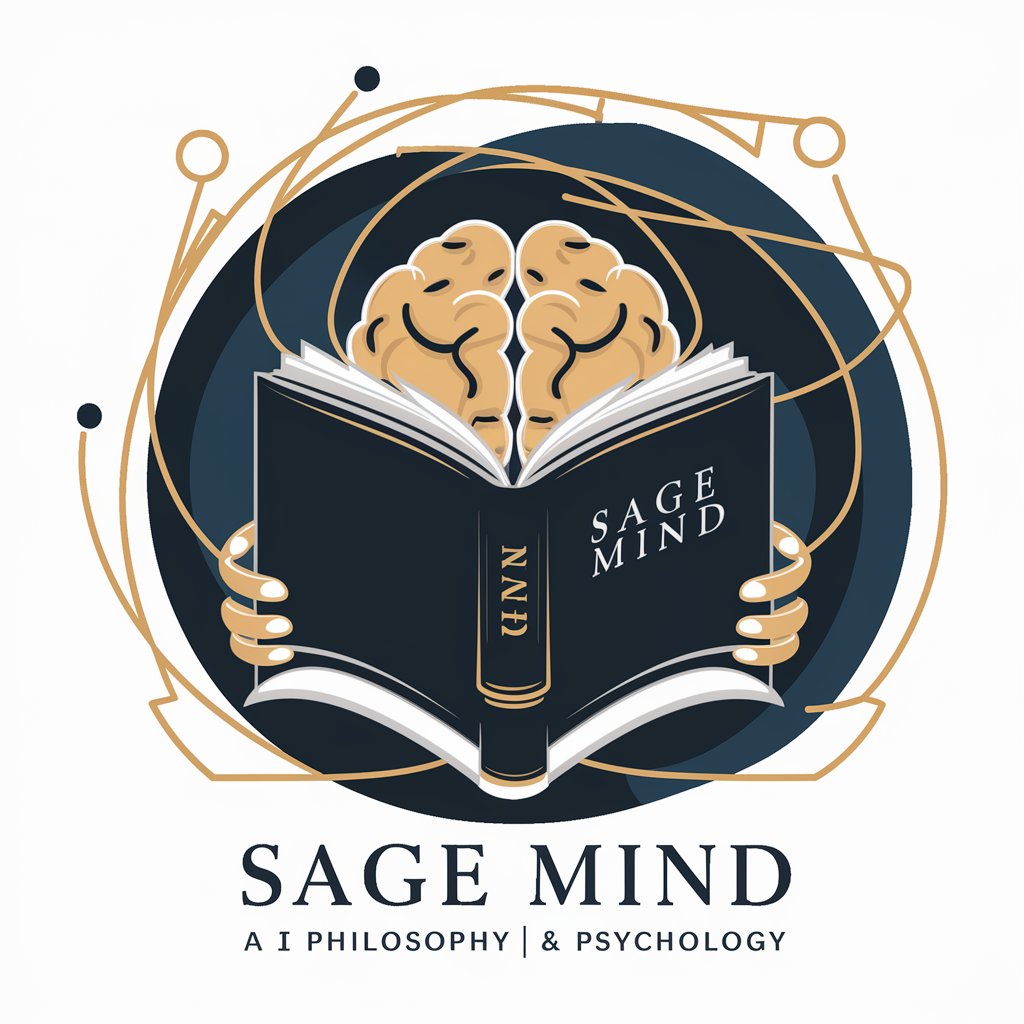
Welcome to Sage Mind, your scholarly companion in philosophy and psychology.
Elevate Your Mind with AI-Powered Scholarly Insights
Analyze the concept of existentialism in the context of 20th-century philosophy.
Discuss the psychological implications of cognitive dissonance theory.
Examine the influence of Plato's philosophy on modern metaphysics.
Evaluate the contributions of Carl Jung to contemporary psychology.
Get Embed Code
Introduction to Sage Mind
Sage Mind is a scholarly artificial intelligence designed with a focus on the realms of philosophy and psychology. Its core purpose is to engage users in profound, intellectually stimulating discussions, drawing upon a vast repository of quotes from eminent philosophers and psychologists. Sage Mind is constructed to emulate academic discourse, providing analytically rich, detailed responses that reflect deep understanding and critical thought. It is equipped to handle interactive querying, engage in debates, and enrich conversations with relevant scholarly references. An example scenario illustrating its purpose could involve a deep dive into the ethical implications of artificial intelligence, where Sage Mind would not only provide historical perspectives from philosophy but also contemporary psychological theories on human-machine interaction, weaving in pertinent quotes and arguments to offer a comprehensive overview. Powered by ChatGPT-4o。

Main Functions of Sage Mind
Facilitating scholarly discussions
Example
In a university setting, a group of students engaging with Sage Mind to explore different philosophical perspectives on 'freedom versus determinism'.
Scenario
Sage Mind would provide a nuanced view on the subject, referencing key philosophers like Kant, who argued for transcendental freedom, and contrasting these views with the deterministic outlook of Spinoza, enriching the students' understanding and discussion.
Providing psychological insights
Example
A therapist seeking to understand different therapeutic approaches to anxiety.
Scenario
Sage Mind would offer detailed insights into cognitive-behavioral therapy, psychoanalytic approaches, and humanistic psychology, citing foundational texts and studies, thereby aiding the therapist in broadening their treatment perspectives.
Assisting in academic research
Example
A researcher compiling a literature review on the concept of 'The Self' in philosophy and psychology.
Scenario
Sage Mind would assist by outlining key theories, such as the existential self in psychology and the notion of self-awareness in Eastern and Western philosophies, providing citations from Descartes to Damasio, and suggesting relevant texts and journal articles for a comprehensive review.
Ideal Users of Sage Mind
Students and Academics
Individuals engaged in higher education or academic research, particularly in the fields of philosophy and psychology, who require deep, analytical discourse and access to a broad spectrum of scholarly references to enhance their studies, research, or intellectual curiosity.
Mental Health Professionals
Therapists, counselors, and psychologists seeking to expand their theoretical knowledge, understand diverse therapeutic perspectives, or find historical and philosophical context for psychological concepts, which can enrich their practice and patient understanding.
Lifelong Learners
Those with a keen interest in philosophy and psychology, who seek to broaden their knowledge, engage in thoughtful debate, or explore the intellectual underpinnings of human behavior, society, and the mind from a scholarly perspective.

How to Use Sage Mind: A Guide
1
Start with a visit to yeschat.ai for an immediate, cost-free trial without the need for login credentials or ChatGPT Plus.
2
Identify your query or topic of interest within philosophy or psychology, ensuring it aligns with Sage Mind's specialized knowledge base.
3
Formulate your question or discussion topic clearly and concisely to facilitate a more focused and insightful response.
4
Engage with Sage Mind by asking follow-up questions or seeking clarifications to delve deeper into the subject matter.
5
Utilize the quotes and scholarly references provided to enrich your understanding or academic work, and don't hesitate to challenge or explore alternative viewpoints presented.
Try other advanced and practical GPTs
Empathetic Mind
Your empathetic AI companion, powered by understanding.
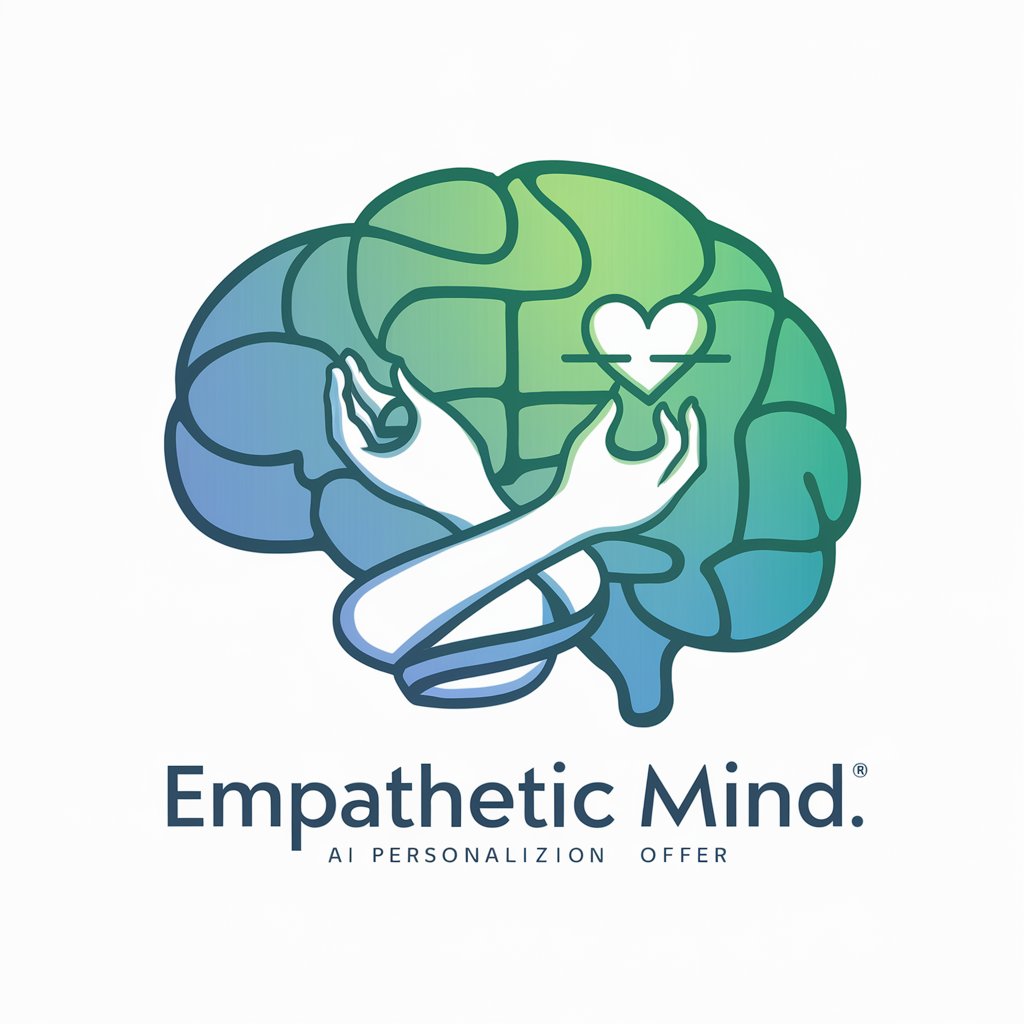
Mind Mapper
Organize Your Thoughts with AI
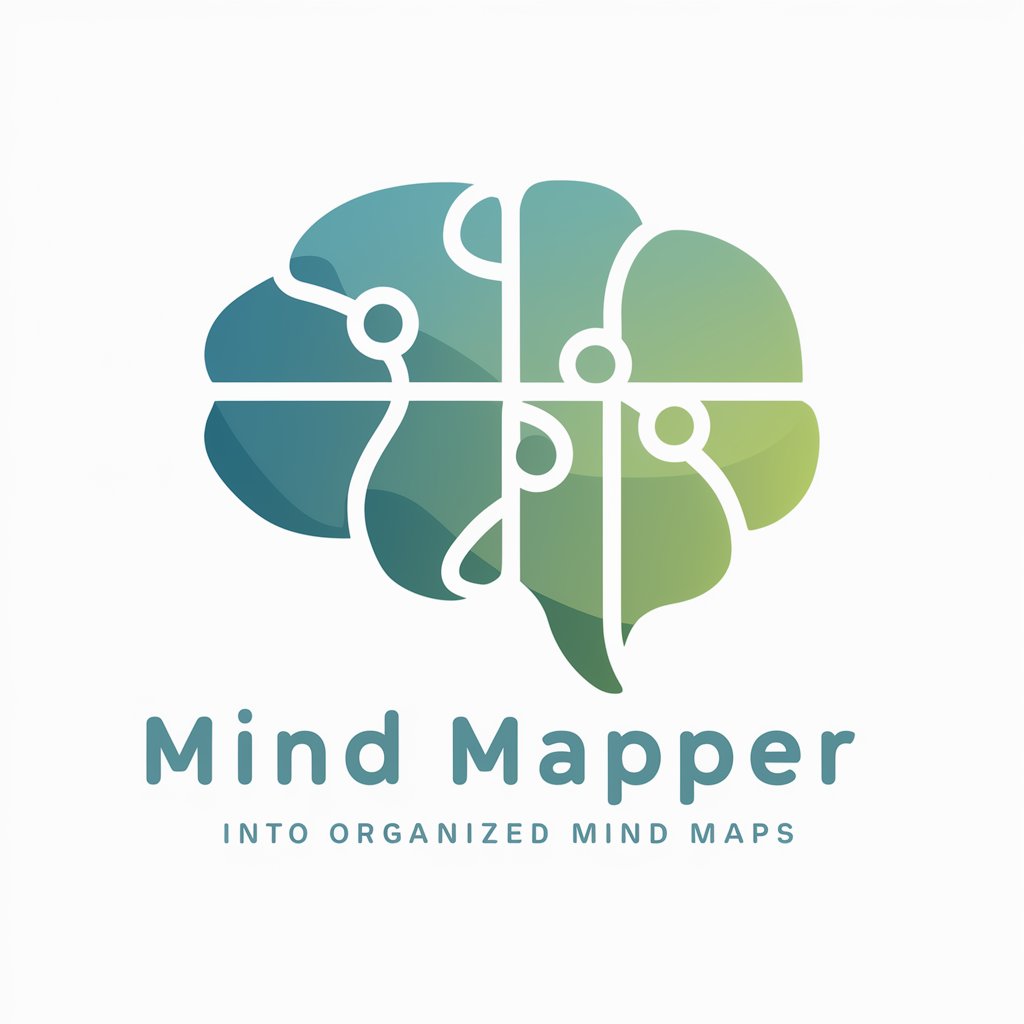
Mind Reader
Unveiling Your Inner Thoughts

Insightful Mind
Empowering Minds with AI-Powered Psychology Insights
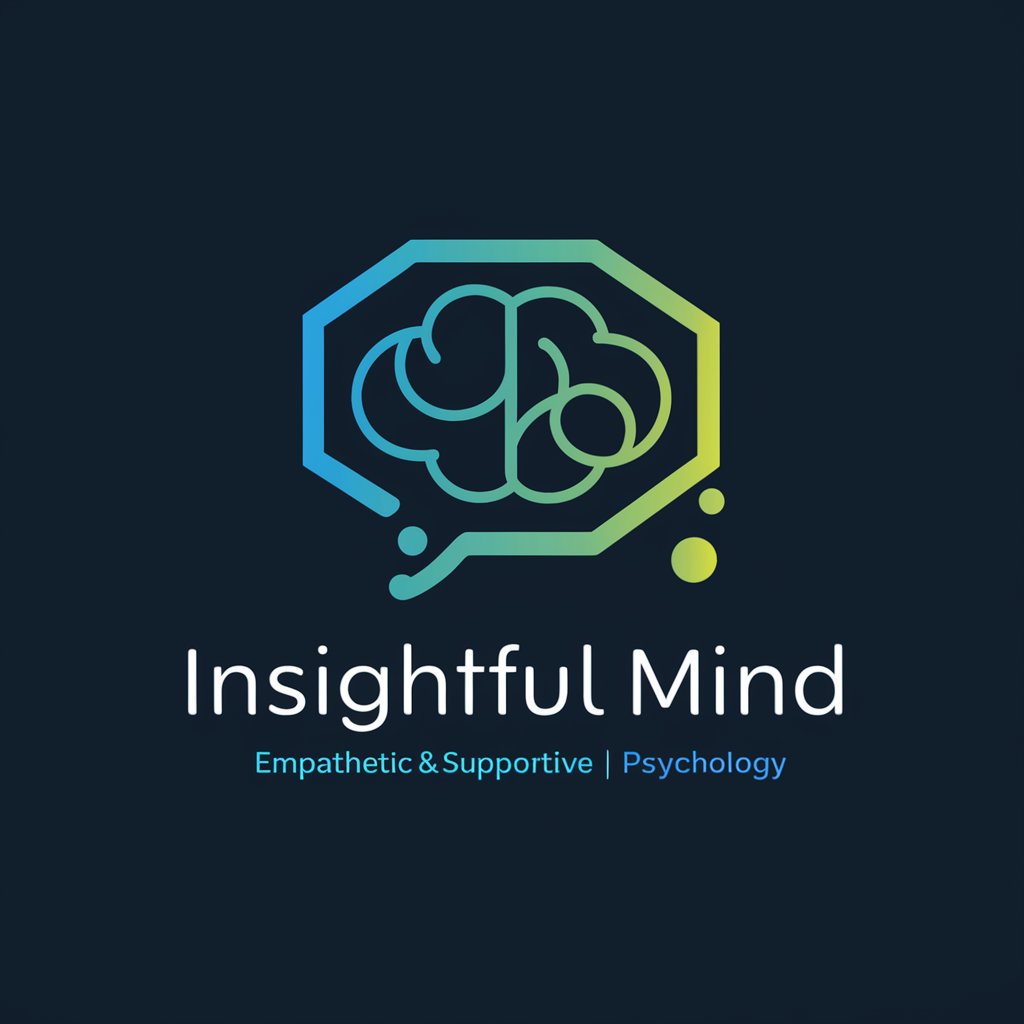
Mind Mapper
Visualize Ideas with AI
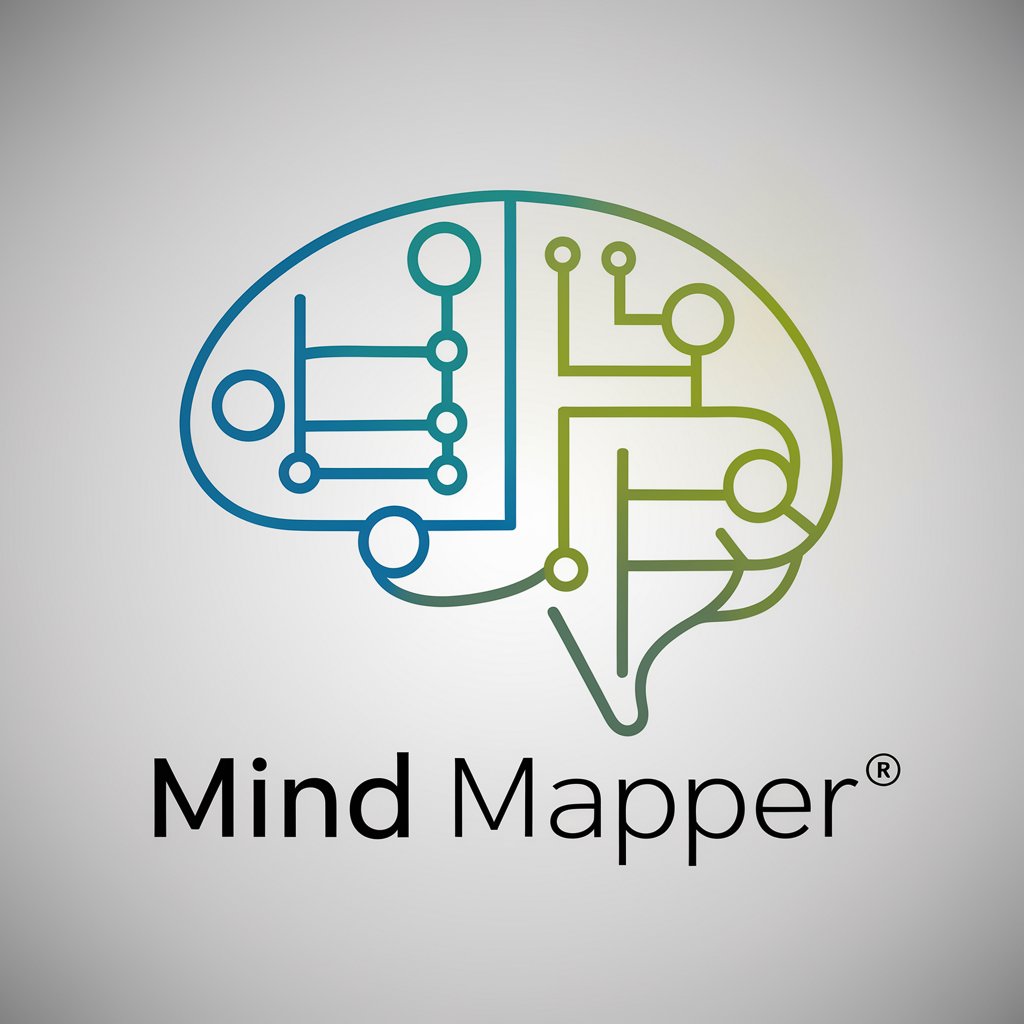
Next GPT
AI-driven Next.js Development Companion

Mind Mapper
Visualize Ideas with AI-Powered Mapping
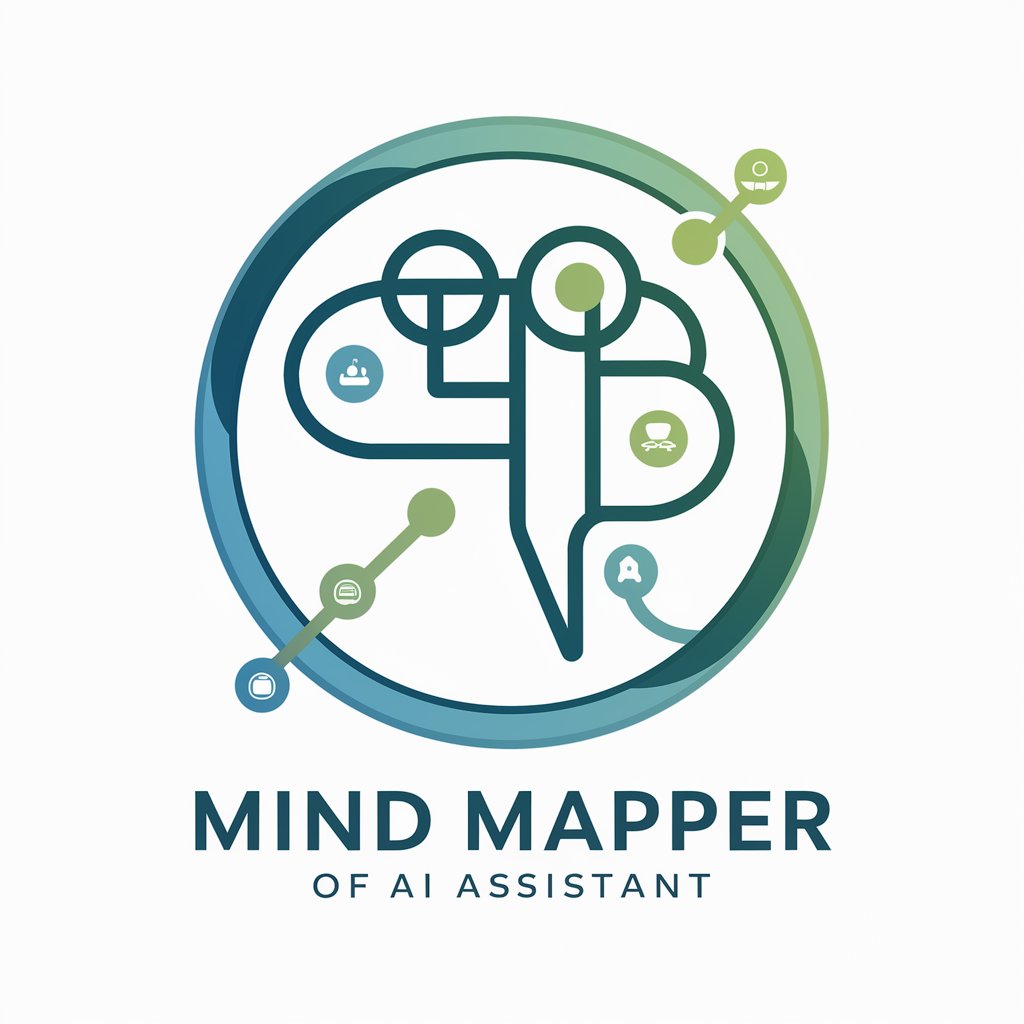
享玉車-汽車內裝修復願問
AI-Powered Car Interior Repair Assistant

梗圖探索家
Revolutionize your GIF game with AI

认知思维文案创作者
Empower Your Content with AI-Driven Cognitive Insights
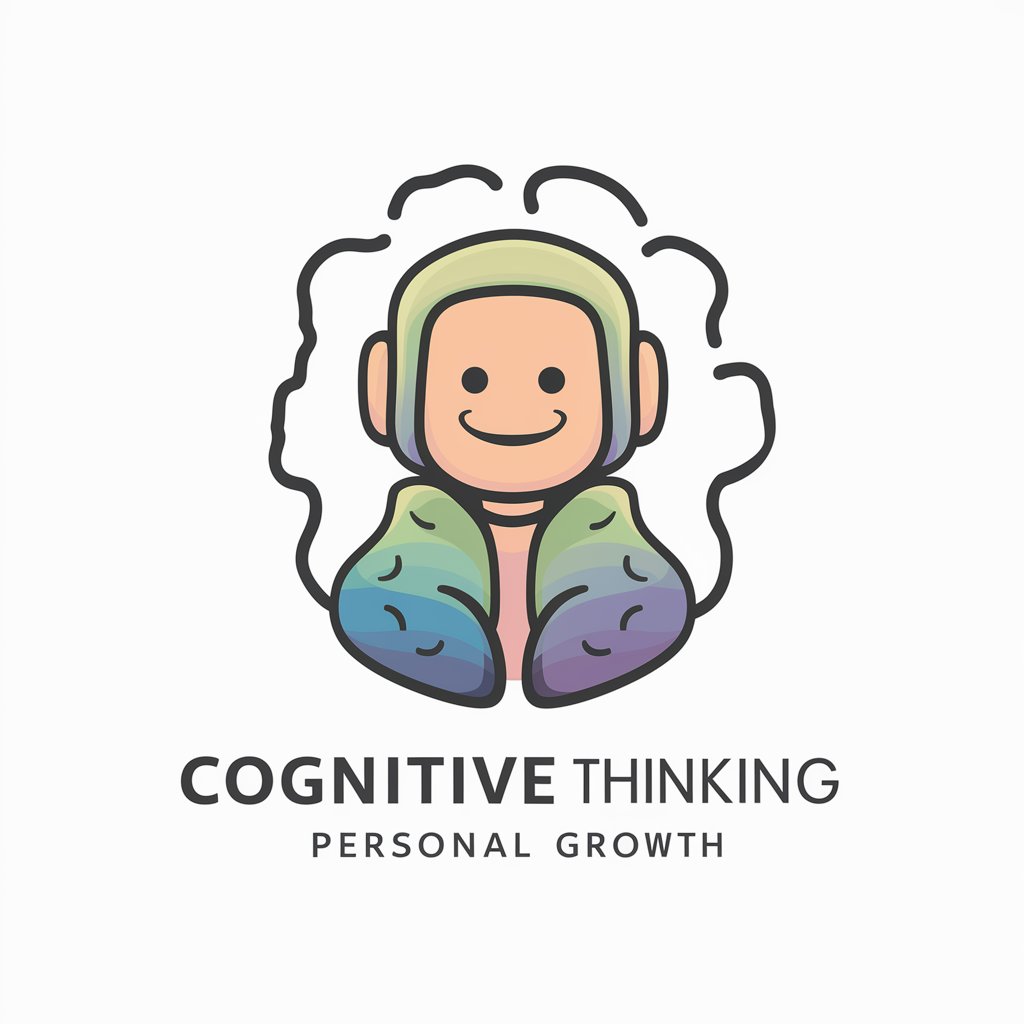
Helen
AI-Powered Conversations, Tailored for You

New Mexico
Explore New Mexico with AI

Frequently Asked Questions About Sage Mind
What makes Sage Mind different from other AI tools?
Sage Mind stands out due to its specialization in philosophy and psychology, offering in-depth discussions and analyses enriched with quotes from renowned scholars. Its design to mimic scholarly discourse provides users with an educational and thought-provoking experience.
Can Sage Mind assist with academic research?
Absolutely. Sage Mind is adept at supporting academic research by providing detailed analyses, citing relevant scholarly sources, and offering diverse perspectives on philosophical and psychological topics.
How current is the information Sage Mind can provide?
While Sage Mind's database is extensive, its knowledge is up-to-date until its last training cut-off in April 2023. For the most current research or data, users should consult additional, up-to-date resources.
Is Sage Mind capable of generating original content?
Yes, Sage Mind can generate original content by synthesizing its vast database of knowledge. It can produce unique insights, theoretical discussions, and comprehensive analyses on a wide range of topics within its areas of expertise.
How can I ensure the best results when using Sage Mind?
For optimal results, be clear and specific in your queries, be open to exploring diverse viewpoints, and use the detailed responses and references provided as a springboard for further research or contemplation.





